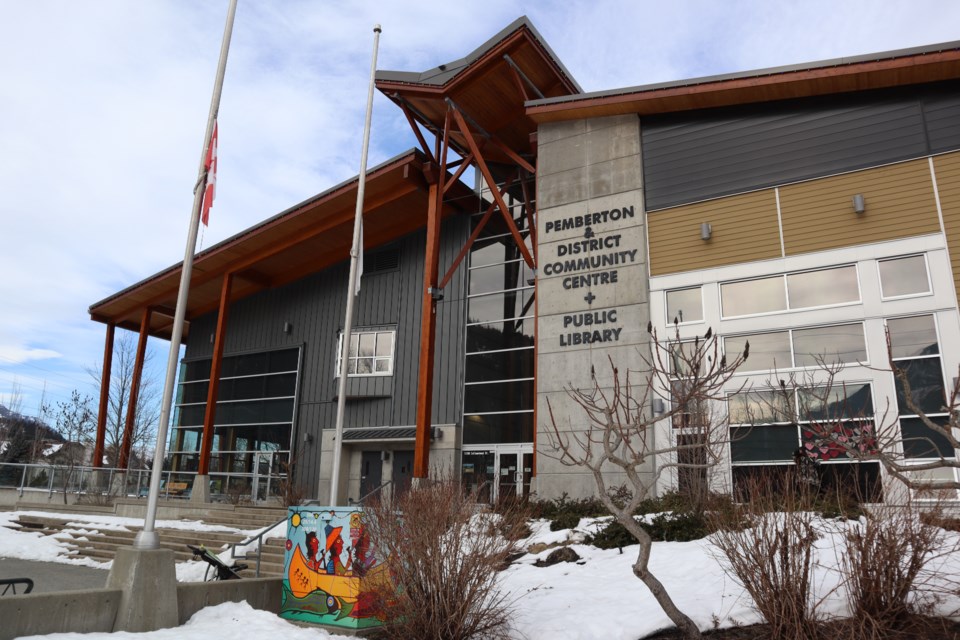While many Pembertonians seem to appreciate the close-knit community, natural splendour and recreational opportunities currently at hand, recurring issues like growth management, affordable housing, climate change and lack of public transportation continue to cause concern.
On April 11, elected representatives of the Village of Pemberton (VOP) heard a presentation summarizing the early findings of public engagement efforts in Phase 1 of the village’s Official Community Plan (OCP) Review. Delivered by community planner Melissa Clements of the consulting firm Urban Systems, the full “What We Heard” report is freely available online.
From Jan. 16 to March 10, locals had the opportunity to pick up Kitchen Table Discussion Kits and host their own conversations about Pemberton’s future. These activities complemented a Community Open House on March 6, which gave attendees a chance to further discuss relevant issues.
When Kitchen Table participants were asked what, in their view, will be Pemberton’s greatest challenge over the next 25 years, five key areas emerged. Out of a total of 215 comments, 33 identified growth management and preserving the village’s uniqueness, while 27 others were concerned about infrastructure. Other salient topics included climate change (21), transportation (18) and affordable housing (16).
Pembertonians also shared various opinions on what they want their town to look like in future years. Thirty-two comments expressed desire for more recreational facilities (such as a pool, ice rink or Nordic Centre), and 24 highlighted the protection of local food systems. Twenty-one were mainly concerned about the development of regional transportation, while the issues of affordability and natural conservation were mentioned in 18 comments apiece.
On the bright side, 71 responses appreciated Pemberton’s “sense of community,” although it is not clear what was specifically meant by this term and whether it differs across demographics. Forty-one respondents lauded easy access to the outdoors, and 34 others were grateful for the area’s natural environments.
Open conversation
Meanwhile, the Open House facilitated small group discussions about four major topics: reconciliation, environmental sustainability and community resilience, the local economy, and housing.
In terms of reconciliation, 11 comments discussed the VOP providing more opportunities for dialogue with First Nations people, 10 wished to promote inclusivity by co-developing area policies and nine would encourage residents to learn more about First Nations history and culture. Clements agrees that more is needed in that area.
“We just need to develop a really good understanding of what [Lil'wat Nation’s] expectations are … and then work towards those,” she said.
The greatest common theme regarding environmental sustainability was the prioritization of emergency response planning against natural disasters (13). Awareness of environmental issues (5), effective waste management (5) and the need for more public transit (4) were also raised.
Eight comments expressed the view that more affordable housing and/or staff housing would be an ideal way to stimulate the local economy. Six others wanted to see more eco or adventure tourism, while five thought that Pemberton’s location and existing recreational offerings could be leveraged.
Regarding the ever-present question of housing—in many ways the hottest topic explored at the Open House—nine responses highlighted prioritizing affordable accommodation (including rentals), while five hope to see more support for first-time home buyers and four believe that more staff housing is needed.
Open House attendees also suggested that Pemberton might establish its own housing committee, analogous to the Whistler Housing Authority (WHA).
VOP staff later issued a clarifying statement on the matter.
“Pemberton and Whistler are different in that Whistler is a resort municipality and has the benefit of large land holdings, as well as a bigger tax base that helps support the implementation of initiatives like a Housing Authority,” the statement read. “Pemberton does not have the land or tax base as such consideration needs to be made in terms of whether a Housing Authority could work in the same format as Whistler.
”It is important to acknowledge the community’s desire to find a solution for housing issues in Pemberton, although it is just as important to explore the right solution that is best for Pemberton.”
Next steps
The “What We Heard” report and other relevant feedback will be used to draft a vision statement, guiding principles, goals, and objectives for the new OCP, which is intended to guide Pemberton policy into the year 2050.
Phase Two of the OCP Review is slated to begin this June and continue until January 2024. During this time, VOP councillors and staff will focus on policy development. Community members will be able to provide further input at various summer events and another Open House this fall.
A housing discussion paper will also be released at the beginning of Phase 2, which according to VOP staff will report on existing feedback and better the community’s understanding of what conditions are required for housing authorities to be successful. Exploration of other affordable housing options will be informed by a Housing Needs Report due in June.
A total of 166 Pembertonians visited the Open House, while 142 involved themselves with Kitchen Table Discussions. Both groups were predominantly female homeowners: 63 per cent of Open House attendees (out of 43 individuals surveyed) identified as women, 86 per cent owned their residence and 37 per cent were between the ages of 45 and 54.
Similarly, 71 per cent of Kitchen Table participants (out of 123 surveyed) were female, 83 per cent were homeowners and 31 per cent were 45 to 54 years old.
Social media has by far been the most popular method of engagement, with OCP Review content getting 14,635 views as of April 11. The official OCP website, haveyoursay.pemberton.ca/ocpreview, has garnered 809 visits.




